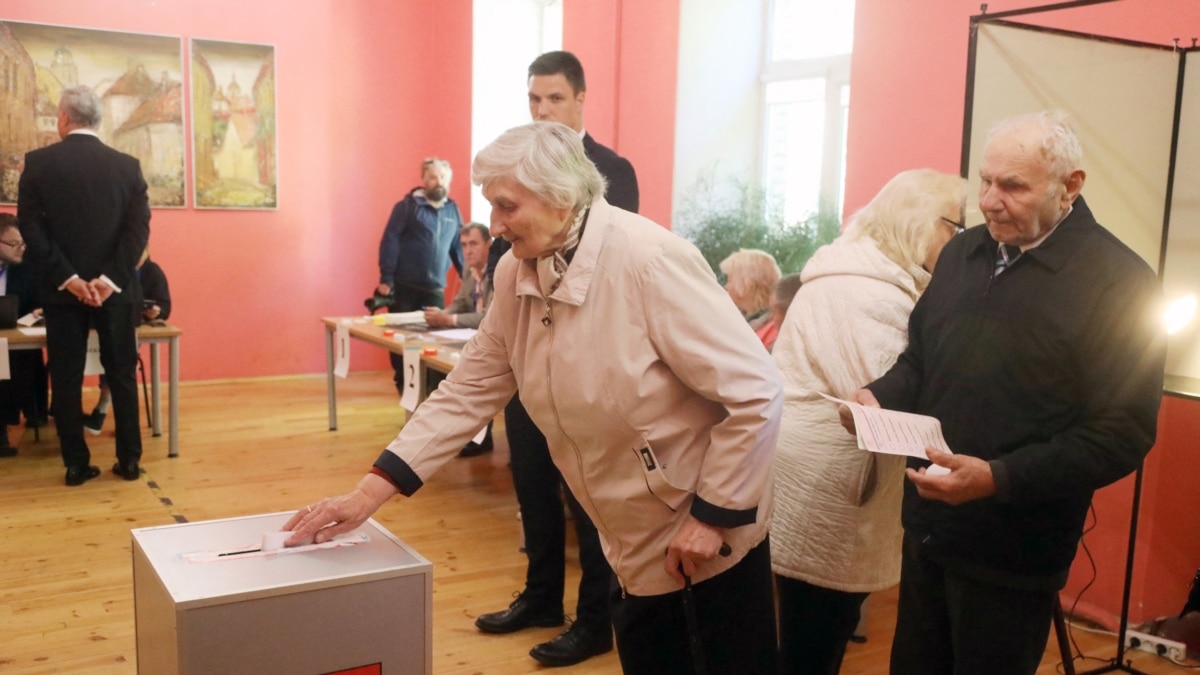Lithuanian Election Amidst Russo-Ukrainian War Shadows
As tensions with Russia rise, Lithuanians take to the polls in a presidential election underpinned by concerns of national security and international relations.
Published May 13, 2024 - 00:05am

Image recovered from voachinese.com
Lithuanians recently cast their votes in a critical presidential election during an era marked by growing anxieties over Russian aggression, particularly following the war in Ukraine. Russians' advancements on Ukrainian battlefields have heightened fears among the Baltic states about Moscow's future intentions.
The election scene in Lithuania was unified in emphasizing increased national defense spending and alignment with NATO and EU standards to counteract Russian threats. All major candidates were in agreement on reinforcing the Baltic nation against potential aggression.
Incumbent President Gitanas Nauseda, known for his staunch support for Ukraine and for securing Lithuania against neighboring threats, leads the polls. Nauseda, along with his rivals, supports increasing Lithuania's defense spending to 2.75% of its GDP, with plans to push it even further. Amid this backdrop, Lithuania continues to provide refuge for those fleeing authoritarian regimes, particularly from Russia and Belarus.
The current political debates extend beyond defense, encapsulating Lithuania's socio-political landscape and its relationship with China. Recently, bilateral relations with China strained due to Lithuania's bold move to allow a Taiwanese representative office in Vilnius, stirring significant controversy and debate over the economic impacts of defying Beijing.
With high voter turnout exceeding 59%, this election signifies the weight of geopolitical pressures on the Lithuanian populace. If no candidate achieves an absolute majority, a second round of voting will determine the nation's leader.
Nauseda's key opponent, Ingrida Simonyte, also has considerable support. She brings forth a fiscally conservative yet socially liberal agenda, indicative of Lithuania's multifaceted political spectrum. Meanwhile, another contender, Ignas Vegele, has emerged as a populist outsider focusing on transparency and governance reforms.
As Lithuania faces pivotal decisions, the small but strategically important nation contributes to the broader narrative of security and democracy in the shadow of Eastern European tumult.
The electoral process in Lithuania reflects the nation's determination to preserve its sovereignty while navigating complex international dynamics. One prominent feature of this election is the visible shift in the political attitude towards national security. The Lithuanian government's commitment to bolster its defenses is evident in its procurement of advanced military equipment and the revamp of its conscription program, which resonates with the electorate's sentiment.
As this pivotal election unfolds, the role of cyber security has also come to the fore. The candidates are advocating for stronger measures to safeguard against the digital warfare that modern conflicts entail. Lithuania's recent history of cyber attacks, attributed to neighboring nations, underlines the necessity of this aspect of defense.
In addition to security, economic policies are a focal point. Lithuania's economy, while resilient, faces challenges such as labor shortages and the need for innovation to foster growth. Consequently, candidates are also judged on their proposals to drive economic development, diversify trade partnerships, and attract foreign investment without compromising national interests.
Moreover, Lithuania's stance on energy security carries significant weight. With previous dependence on Russian energy, the nation has made strides to wean itself from this reliance. Candidates are discussing strategies on how to further this independence, primarily through alternative energy sources and infrastructure, such as the much-anticipated synchronization of the Baltic states' electricity grid with that of continental Europe.
On the social front, issues such as the welfare state, education reform, and healthcare quality reflect the society's concerns in this election. While the candidates present varied approaches, their policies indicate a common understanding that a robust social system underpins national resilience.
Lithuanian foreign policy remains another critical determinant in these elections. The candidates have addressed the need for a more assertive foreign policy stance, particularly in the face of an assertive Russia and a complex relationship with China. The engagement with international organizations, as well as bilateral ties with countries like the United States, are also points of discussion, central to Lithuania's strategic positioning on the global stage.
Given the electoral significance, international observers have noted Lithuania's robust democratic practices, with transparent and fair voting processes being upheld. This election is seen as a potential beacon for other countries in the region, demonstrating a commitment to democratic values amidst geopolitical uncertainty.
Lithuania's media has actively covered this pivotal time, ensuring that the public debate around these issues is broad and multifaceted. This has played a crucial role in engaging citizens in the political process, in turn bolstering the robust nature of Lithuania's democracy.
As Lithuania waits for the official election results, its citizens and the international community will be closely watching the direction the new leader will steer the country in, particularly how they will navigate the balance between security, democracy, and development. The outcome will not only determine the future of Lithuania but will also signal the strategic directions of the Baltic region and possibly influence the responses of Western allies to Eastern European security concerns.






